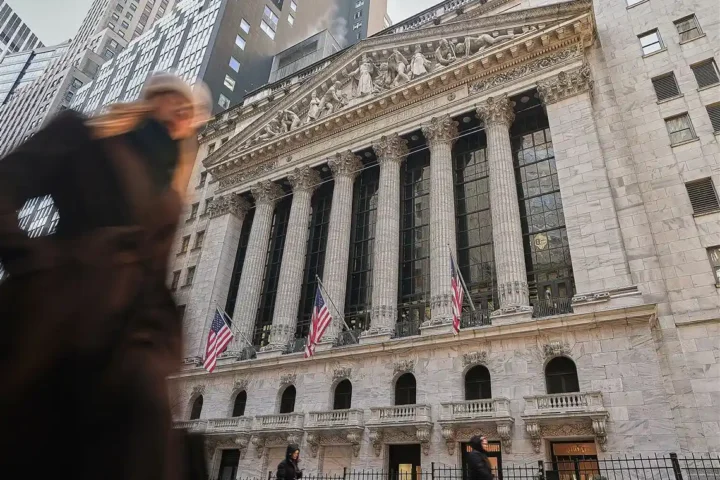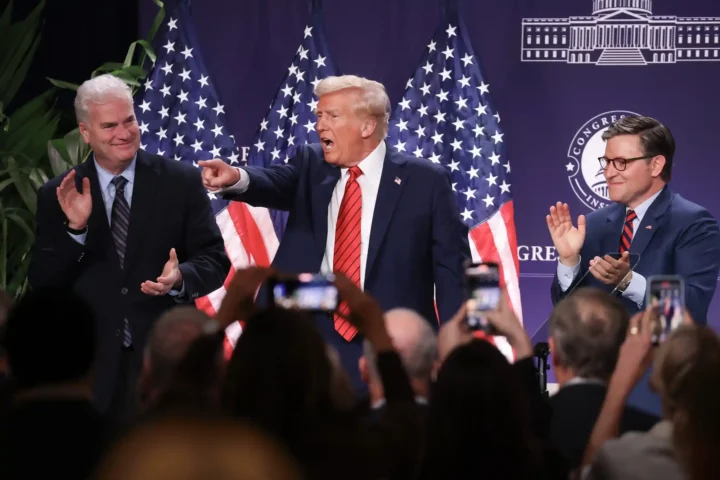When Keir Starmer and Donald Trump clasped hands amid the pageantry of a royal carriage procession and a fighter jet flyover in London earlier this year, both men sold their May trade pact as the dawn of a “new economic partnership.” Four months later, that fanfare looks increasingly hollow. Trump’s sudden tariff blitz—targeting British pharmaceuticals, trucks, and even the film industry—has exposed how fragile Starmer’s “special economic relationship” really is.
A Deal Built on Sand
At the time, Starmer’s aides hailed the May trade agreement as a pragmatic reset—an antidote to the ideological bombast of the Brexit years. Tariffs on British car exports would fall to 10 percent, and U.K. access to American markets would expand under a so-called “Economic Prosperity Deal.” But crucially, the pact left unfinished business: Britain failed to secure zero-tariff status on steel and aluminum, and it allowed the U.S. broad latitude to revise or impose new tariffs if “domestic industrial conditions” warranted it.
Now, that open-ended language has given Trump room to maneuver. His latest threats—a 100 percent tariff on pharmaceutical imports unless companies break ground on U.S. factories—are a reminder that Trumpism’s economic nationalism has not softened. Britain’s miscalculation wasn’t simply trusting Trump’s word; it was underestimating how transactional and volatile his approach to trade remains.
Pharma in the Firing Line
The pharmaceutical standoff encapsulates the danger of Trump’s “America First” agenda for a country like Britain, whose economic model leans heavily on global supply chains. The U.K. pharma sector is one of its few unambiguous export success stories. Yet Trump’s ultimatum—that companies must manufacture in America or face punitive tariffs—turns that advantage into a liability.
British giants like GSK and AstraZeneca have scrambled to insulate themselves by announcing multibillion-dollar U.S. investments. These moves may secure them exemptions from the tariff hike, but they highlight a grim reality: Britain’s leverage is eroding, and investment that might have flowed into U.K. labs is now being diverted across the Atlantic.
Meanwhile, Starmer’s government faces a political Catch-22. To placate Washington, it may have to relax NHS drug pricing controls—an issue so sensitive that even trade veterans warn it is “more toxic than hormone-treated beef.” For a Labour prime minister promising to rebuild the National Health Service, being seen to raise medicine costs under American pressure would be a political nightmare.
The Perils of Political Symbolism
The spectacle of Trump’s state visit—complete with the King, the horses, and the flags—was meant to showcase a confident, global Britain. Instead, it symbolized how ceremony can mask strategic weakness. While Starmer’s team was celebrating the optics of a “dealmaker’s moment,” the fine print was already giving Trump all the leverage he needed.
The American president’s recent Truth Social tirades about slapping tariffs on heavy trucks and entertainment imports underscore the point: these policies can materialize overnight, sometimes without even a formal executive order. The message to U.K. exporters is simple—uncertainty is the new normal.
The Illusion of Control
The most striking aspect of this saga is how little control Britain retains over its economic fate. Post-Brexit rhetoric promised a nimble, globally connected U.K. freed from Brussels’ bureaucracy. Instead, London finds itself once again reacting to decisions made in Washington. Trump’s tariff threats have turned the “Global Britain” project into a lesson in dependency: when your most important ally weaponizes tariffs to force your firms to invest elsewhere, you’re not an equal partner—you’re a price-taker.
A Cautionary Tale for Starmer
Keir Starmer entered office with a promise to “make Britain matter again.” His effort to strike a working relationship with Trump was, on paper, a bold bet—anchoring Labour’s economic credibility to a pragmatic, post-ideological trade policy. But pragmatism without power is just appeasement.
Unless Starmer can extract genuine concessions from the White House—on pharma, steel, and the broader terms of trade—the U.K. risks drifting into a 21st-century mercantilist trap: a junior partner perpetually adapting to the whims of American protectionism.
As Trump’s tariffs loom and NHS budgets tighten, the question is no longer whether Britain can manage the “special relationship”—it’s whether it still gets anything out of it.











